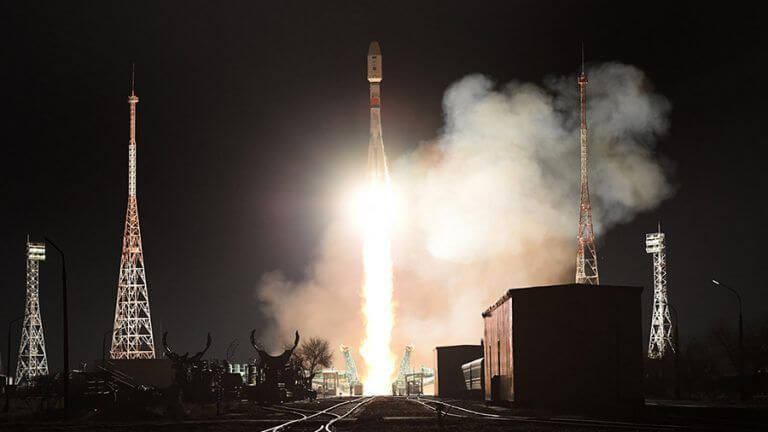A Russian cargo ship will fly to the space station on Friday (Dec. 1), and you can watch the event live.
The International Space Station (ISS) launch will see a Russian Progress cargo ship fly to space at 4:25 a.m. EST (0925 GMT or 3:25 p.m. local time) from the Baikonur Cosmodrome in Kazakhstan. You can watch that event live here at Space.com, via NASA Television, about 25 minutes before launch.
On Sunday (Dec. 3) there will be another live event with the spaceship, when Progress 86 (also designated as MS-25) is expected to dock with the space station’s Poisk module carrying 5,600 pounds (2,540 kg) of cargo. Docking is scheduled for 6:14 a.m. EST (1114 GMT). Coverage will begin here at Space.com, via NASA Television, at 5:30 a.m. EST (1030 GMT).
The ISS uses resupply ships to provide food, equipment, supplies and science for long-duration crews on the orbiting complex. The Expedition 70 crew on board now saw the departure of the Progress 84/MS-23 spacecraft on Wednesday (Nov. 29), before burning up in the Earth’s atmosphere as planned a few hours later, NASA officials wrote in a blog post.
Roscosmos cosmonauts Oleg Kononenko and Nikolai Chub recently “reviewed procedures … for monitoring the approaching cargo craft and practiced remotely controlling” the approaching Progress ship if it is needed, NASA officials added. But in a normal docking, Progress should approach and attach to the space station without need of crew intervention.
Progress is one of several ships tasked with resupplying the ISS. The other current vehicles, both from the United States, are the SpaceX Dragon and Northrop Grumman Cygnus. Progress is also used regularly to boost the ISS orbit and if necessary, to fire its engine to avoid orbital debris. NASA has tested boosting the ISS with Cygnus, as a backup.

